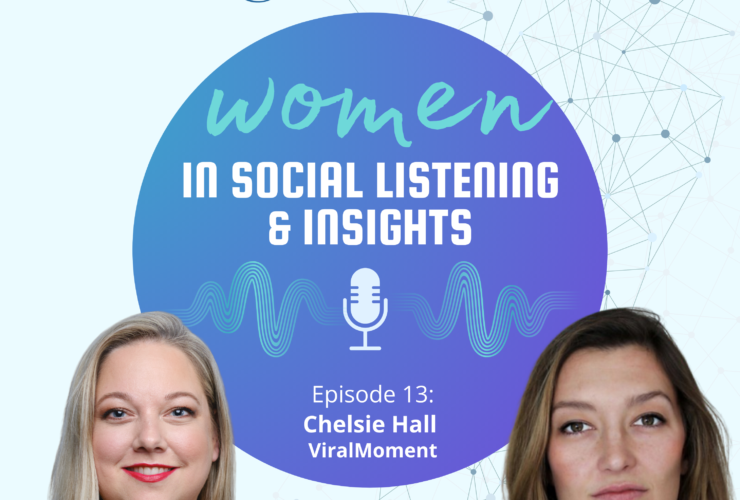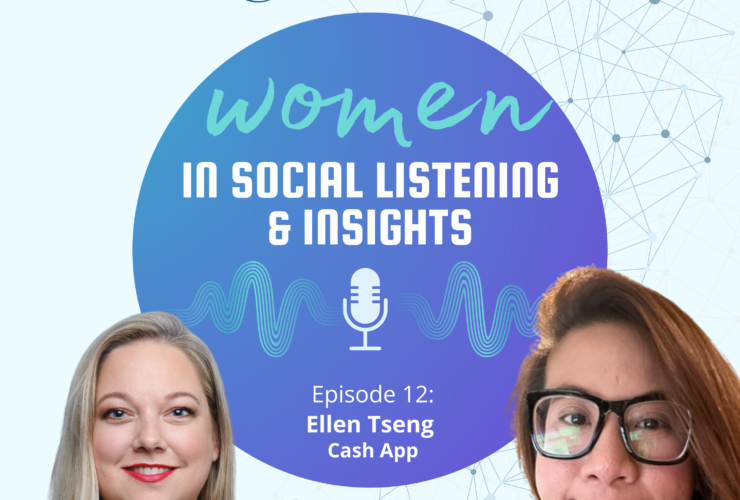As 2018 draws to an end, the shopping season officially begins. Wherever they turn, consumers are confronted with messages to ‘buy now!’ to secure the best deal. From targeted banners and social media feeds to digital screens on public transport and traditional TV ads – the alluring campaigns are so widespread that even savvy spenders find it challenging to turn down the many tempting offers on things they never knew they needed. As anyone who hasn’t spent their life under a rock will know, this is nothing new. December has long been the most popular shopping month, only recently joined by November thanks to the emergence of new shopping holidays and the global spread of shopping events previously limited to specific geographic markets.

But alongside these fast-evolving shopping traditions and experiences, the anti-consumerism movement is gaining more and more prominence. By digging deep into the online conversations through social listening during this shopping season, we found a small yet steady trend inciting shoppers to think twice before parting with their hard-earned cash for yet another kitchen appliance. Using social media to share their initiatives, these groups are introducing alternative ways to promote businesses, successfully appealing to individuals who prefer spending with a purpose and driving awareness of sustainable living and zero waste.
Top shopping holidays
To acquire a snapshot of the global shopping conversations, we developed a set of search terms and collected data from November 2017 to December 2018. Below are the shopping dates that generated the most buzz on social globally over the past 12 months based on the results (share of conversation shown in brackets).
- Valentine’s Day (7%): From chocolate boxes to jewellery, Valentine’s Day is all about treating that special someone in your life.
- Singles’ Day (1%): On the 11th November (the ‘1’ in the date resembles a lone individual), China’s singletons celebrate their relationship status by going on a spending spree. The success of Singles’ Day paved way for its cyber version on the 12th December (12.12).
- Mother’s Day (4%) and Father’s Day (2%): Gender-specific gifts dominate this day that’s about expressing gratitude towards your parents.
- Back to School (4%): Starting the new term with brand new stationery and a backpack is a must for many.
- Post-Thanksgiving (21%): Consumption has become something of an unofficial ritual during the Thanksgiving holiday in the US, but Black Friday and Cyber Monday are now important shopping events across the globe.
- Christmas (61%): ‘tis the season for giving! Although Christmas themed displays have begun to appear in shops as early as September, it seems many shoppers leave their purchases to last minute. Regardless of when the purchases are made, Christmas is the time of the year when consumers spend the most. This year, a third of Americans are predicted to spend as much as 1,000 USD on gifts alone.
As the share of conversation shows, winter is the top shopping season on social, with Christmas and Post-Thanksgiving generating the most traction. Promotions on Valentine’s Day, Mother’s Day, Father’s Day and Back to School generated some excitement in 2017/18, but the levels of engagement around these were considerably lower.
A majority of the expressed shopping excitement came from US-based consumers, who represented 70% of the total conversation. In contrast, Europe only made up a fifth. While the tool we used had some limits in terms of Chinese data collection, the vast gap between the regions suggests that North American social media users are more likely to engage with retailers’ promotions and share shopping related content. Black Friday, Cyber Monday and Christmas garnered the most interest, especially from netizens in South America, Europe and Oceania. Unsurprisingly, given the origin of the holiday, 12.12 was more popular in Asian countries, especially China.

Conscious consumers and anti-shoppers
While shopping excitement dominated conversations, the data also unveiled the growing anti-consumerism trend. Calling out the harmful effects on the environment caused by excessive consumption, some consumers and business owners turned their back on the shopping holidays – or flipped them on their head by, in some cases, hijacking the shopping event hashtag (#BlackFriday, #CyberMonday, #SinglesDay etc) to promote a sustainable alternative. The US drove the peak of the movement with America Recycles Day on 16th April and, most recently, Black Friday on 23rd November.
![]()

Opting out of big shopping events as a retailer may seem unwise. After all, running a business is about maximising those profit margins. But, as the below examples show, an absence of deals and discounts does not necessarily equal an absence of consumer engagement and money in the till over time.
1. BUSINESS AS USUAL THIS [INSERT SHOPPING HOLIDAY HERE]:
Undoubtedly an extreme measure, some retailers decided to close for the big shopping days. A less radical option is to not partake in any promotional activities, selling products at regular prices like on any day of the week. If done right, this can help emphasise the quality and uniqueness of the products sold.
2. DONATING A PORTION OF THE PROFITS TO A CHARITY:
Instead of hunting down money-saving deals, conscious consumers are likely to prefer giving ethical gifts or donating to charities during the festive period. As shown below, this year, savvy businesses offered their customers to do both by sacrificing a portion of their profits for worthy causes.
NEW BLOG: THTC #BLACKFRIDAY 2018 Special. We’ve raised prices 250% on a select range of clothing. Arbitrarily inflating our prices just like other fashion labels do year round – but giving the money to @RefugeeCKitchen. Learn more: https://t.co/DazB4jj85f #anticonsumption pic.twitter.com/lqDD29HUsz
— THTC clothing (@THTCCLOTHING) November 23, 2018
3. STRENGTHEN THE HOLIDAY SPIRITS IN BRAND COMMUNICATION:
As anyone who’s ever been a kid will know, being crafty is an essential part of Christmas. But handmade creations are not only enjoyed by the junior members of the family; Millennials are increasingly having a go at it too. Businesses can tap into this trend by encouraging customers to get creative (as in the example below) or even organise social in-store come-and-do sessions. This form of get-together will not only boost brand awareness but also demonstrate the fun side of the brand as well as its commitment to ethical practices.
4. LOOK OUT FOR ANTI-CONSUMPTION MOVEMENTS (WHITE MONDAY, BUY NOTHING DAY, MAKE SMTHNG):
Originating in Sweden, White Monday falls on the Monday before Black Friday and publicly questions our desire for material wealth. Similarly, Buy Nothing Day, which was coined in the US but has now gained presence in parts of Europe, protests against consumerism. The week-long festival, starting on Black Friday, MAKE SMTHNG encourages people to spend time with each other and make the most of the resources around them.
I and bambinofoundation have joined the movement #whitemonday as an antipole against Black Friday. Consumerism is result of western way of life and consumption. It is not the billions of poor people’s consumption living in developing countries that have impacted climate globally. pic.twitter.com/Yokr4fzQFJ
— Heaven (@hevbereket) November 19, 2018
Today is #WhiteMonday in Sweden – a reaction against #BlackFriday. Perhaps time to share the article below once again?! ??️✨
What do you think about #BlackWeek? Do you plan to make any bargains or not? https://t.co/U7rVWsiQeq— LUSEM (@Lunduni_LUSEM) November 19, 2018
What are the takeaways for brands?
Our insights showed that brands don’t necessarily have to churn out bargain deals in order to compete during the shopping holidays. By taking a creative stand against overconsumption, the SMEs shown in the examples above appealed to conscious consumers who demonstrated this through likes, comments and shares on social media. As climate change continues to make headlines, the environmental credentials of brands are likely to play an increasingly important role for savvy shoppers. Retailers looking to entice environmentally conscious people should stay tuned to the anti-consumerism movement and not shy away from green thinking when developing their sales strategies and messaging.
What do you make of these new anti-consumerism initiatives? Does your business take part in any activities to support the zero waste-movement? Please share your thoughts and comments on our Twitter or Facebook.
If you want to take a closer look at how communications during shopping events can impact brand perception and different segments of consumers, please don’t hesitate to contact us.






